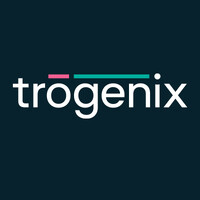Precision Oncology Pioneer Trogenix Secures Landmark €80M Series A for Curative Cancer Fight
October 7, 2025, 3:36 pm
Trogenix, an Edinburgh-based biotech, secured a monumental €80 million Series A funding. This capital empowers its pursuit of curative cancer treatments for aggressive solid tumors. The firm's Odysseus platform uses advanced gene control and immune-boosting techniques. It targets devastating diseases like glioblastoma and colorectal cancer liver metastases. Clinical trials for glioblastoma are slated for early 2026. This landmark investment, among Europe's largest early-stage rounds, signals strong investor confidence in Trogenix's 'one-and-done' precision medicine approach, poised to transform oncology and patient outcomes.
A Scottish biotech firm, Trogenix, has closed an €80 million Series A funding round. This significant capital injection, reported as £70 million in some outlets, marks a pivotal moment. It accelerates the company's ambitious mission. Trogenix aims to deliver potentially curative cancer treatments. Their focus is on aggressive solid tumors, often resistant to current therapies. This funding positions Trogenix as a leader in the evolving landscape of precision oncology.
The substantial investment was led by IQ Capital. Key participants included founding investor 4BIO Capital. Returning investors, Cancer Research Horizons and the Brain Tumor Investment Fund, also contributed. New investors joined the round. Eli Lilly and Company, Meltwind, LongeVC, and Calculus Capital are now on board. Undisclosed private investors also provided backing. This broad investor syndicate underscores strong confidence in Trogenix’s scientific approach and commercial potential. Cancer Research Horizons noted this as its largest investment to date. This speaks volumes about Trogenix's transformative promise.
Trogenix originated in 2023. It spun out from Professor Steve Pollard’s research at the University of Edinburgh. This academic foundation, coupled with robust early funding, set a strong trajectory. The company's core technology is its proprietary Odysseus platform. This platform represents a significant leap in gene-based therapeutics. It targets universal vulnerabilities found in solid tumors.
The Odysseus platform utilizes cutting-edge science. It employs proven AAV vectors. These vectors deliver Synthetic Super-Enhancers (SSEs) directly to tumor cells. The precision of gene control is critical. These SSEs effectively unmask cancer cells. They reveal them to the body’s own immune system. This allows the immune system to recognize and attack malignant cells. Moreover, the technology delivers highly potent combination payloads. These payloads kill cancerous cells. They stimulate the immune system simultaneously. Crucially, surrounding healthy tissue remains unharmed. This selective targeting marks a significant advancement in cancer therapy.
A unique "Trojan horse" mechanism is also integral to Trogenix’s strategy. This mechanism helps counter cancer recurrence. It offers the prospect of "one-and-done" treatments. This revolutionary approach could drastically change patient outcomes. It offers long-term protection against tumor regrowth. Such a paradigm shift is desperately needed.
Trogenix’s lead program targets glioblastoma (GBM). Glioblastoma is an exceptionally aggressive brain cancer. It is notoriously resistant to treatment. Patient survival rates are grim. Only a quarter of GBM patients survive beyond one year. Decades of research have yielded limited progress. Trogenix aims to change this bleak outlook. The company's preclinical studies show great promise. They demonstrate the platform’s ability to kill glioblastoma cells. It also stimulates the immune system. This occurs without harming healthy brain tissue.
Clinical trials for the glioblastoma program are imminent. First patient dosing is anticipated in Q1 2026. This move into human trials marks a crucial milestone. It brings the potential for a groundbreaking glioblastoma therapy closer to reality.
Beyond glioblastoma, Trogenix has an extensive pipeline. Its follow-on program targets colorectal cancer liver metastases (CRCLM). Colorectal cancer is a global health burden. It ranks as the third most common cancer worldwide. A significant number of patients, at least 25%, develop liver metastases. These secondary tumors are often challenging to treat. Trogenix’s approach offers new hope.
The company is also developing therapies for other aggressive solid cancers. These include hepatocellular carcinoma (liver cancer) and non-small cell lung carcinoma (lung cancer). This broad focus addresses critical unmet needs across oncology. It showcases the versatility of the Odysseus platform.
Trogenix's success reflects a broader trend in European biotech. Funding remains robust across the continent. Capital increasingly concentrates on high-potential therapeutic platforms. Trogenix’s Series A round is among Europe’s largest early-stage rounds this year. This places it alongside other significant investments. Nanophoria’s €83.5 million Series A and NUCLIDIUM’s €84 million Series B demonstrate this trend. This scale of investment signals continued investor commitment. European biotech innovation, especially platform technologies, promises both scientific and commercial scalability.
Within the UK, oncology-focused ventures consistently attract substantial backing. Companies like LIfT BioSciences and Cyted Health have secured significant funding. Trogenix's investment not only stands out for its size. It also aligns with a wider European trend. This trend favors precision oncology and advanced gene-based therapeutics. These therapies are actively moving toward clinical development.
The investment underscores the curative potential of Trogenix’s precision genetic medicines. These are driven by its Odysseus platform. This technology could fundamentally change the cancer treatment paradigm. It offers a new path for patients facing devastating diagnoses. The prospect of 'one-and-done' treatments offers immense hope. It could spare countless individuals from prolonged, arduous, and often ineffective therapies.
Trogenix represents the future of cancer care. Its innovative approach harnesses the body's own defenses. It targets cancer with unprecedented precision. The company's rapid progression from research spin-out to clinical trials is notable. This trajectory, supported by significant investment, points to a future where aggressive cancers are not just managed but potentially cured. This could transform global oncology, offering new hope to millions.
A Scottish biotech firm, Trogenix, has closed an €80 million Series A funding round. This significant capital injection, reported as £70 million in some outlets, marks a pivotal moment. It accelerates the company's ambitious mission. Trogenix aims to deliver potentially curative cancer treatments. Their focus is on aggressive solid tumors, often resistant to current therapies. This funding positions Trogenix as a leader in the evolving landscape of precision oncology.
The substantial investment was led by IQ Capital. Key participants included founding investor 4BIO Capital. Returning investors, Cancer Research Horizons and the Brain Tumor Investment Fund, also contributed. New investors joined the round. Eli Lilly and Company, Meltwind, LongeVC, and Calculus Capital are now on board. Undisclosed private investors also provided backing. This broad investor syndicate underscores strong confidence in Trogenix’s scientific approach and commercial potential. Cancer Research Horizons noted this as its largest investment to date. This speaks volumes about Trogenix's transformative promise.
Trogenix originated in 2023. It spun out from Professor Steve Pollard’s research at the University of Edinburgh. This academic foundation, coupled with robust early funding, set a strong trajectory. The company's core technology is its proprietary Odysseus platform. This platform represents a significant leap in gene-based therapeutics. It targets universal vulnerabilities found in solid tumors.
The Odysseus platform utilizes cutting-edge science. It employs proven AAV vectors. These vectors deliver Synthetic Super-Enhancers (SSEs) directly to tumor cells. The precision of gene control is critical. These SSEs effectively unmask cancer cells. They reveal them to the body’s own immune system. This allows the immune system to recognize and attack malignant cells. Moreover, the technology delivers highly potent combination payloads. These payloads kill cancerous cells. They stimulate the immune system simultaneously. Crucially, surrounding healthy tissue remains unharmed. This selective targeting marks a significant advancement in cancer therapy.
A unique "Trojan horse" mechanism is also integral to Trogenix’s strategy. This mechanism helps counter cancer recurrence. It offers the prospect of "one-and-done" treatments. This revolutionary approach could drastically change patient outcomes. It offers long-term protection against tumor regrowth. Such a paradigm shift is desperately needed.
Trogenix’s lead program targets glioblastoma (GBM). Glioblastoma is an exceptionally aggressive brain cancer. It is notoriously resistant to treatment. Patient survival rates are grim. Only a quarter of GBM patients survive beyond one year. Decades of research have yielded limited progress. Trogenix aims to change this bleak outlook. The company's preclinical studies show great promise. They demonstrate the platform’s ability to kill glioblastoma cells. It also stimulates the immune system. This occurs without harming healthy brain tissue.
Clinical trials for the glioblastoma program are imminent. First patient dosing is anticipated in Q1 2026. This move into human trials marks a crucial milestone. It brings the potential for a groundbreaking glioblastoma therapy closer to reality.
Beyond glioblastoma, Trogenix has an extensive pipeline. Its follow-on program targets colorectal cancer liver metastases (CRCLM). Colorectal cancer is a global health burden. It ranks as the third most common cancer worldwide. A significant number of patients, at least 25%, develop liver metastases. These secondary tumors are often challenging to treat. Trogenix’s approach offers new hope.
The company is also developing therapies for other aggressive solid cancers. These include hepatocellular carcinoma (liver cancer) and non-small cell lung carcinoma (lung cancer). This broad focus addresses critical unmet needs across oncology. It showcases the versatility of the Odysseus platform.
Trogenix's success reflects a broader trend in European biotech. Funding remains robust across the continent. Capital increasingly concentrates on high-potential therapeutic platforms. Trogenix’s Series A round is among Europe’s largest early-stage rounds this year. This places it alongside other significant investments. Nanophoria’s €83.5 million Series A and NUCLIDIUM’s €84 million Series B demonstrate this trend. This scale of investment signals continued investor commitment. European biotech innovation, especially platform technologies, promises both scientific and commercial scalability.
Within the UK, oncology-focused ventures consistently attract substantial backing. Companies like LIfT BioSciences and Cyted Health have secured significant funding. Trogenix's investment not only stands out for its size. It also aligns with a wider European trend. This trend favors precision oncology and advanced gene-based therapeutics. These therapies are actively moving toward clinical development.
The investment underscores the curative potential of Trogenix’s precision genetic medicines. These are driven by its Odysseus platform. This technology could fundamentally change the cancer treatment paradigm. It offers a new path for patients facing devastating diagnoses. The prospect of 'one-and-done' treatments offers immense hope. It could spare countless individuals from prolonged, arduous, and often ineffective therapies.
Trogenix represents the future of cancer care. Its innovative approach harnesses the body's own defenses. It targets cancer with unprecedented precision. The company's rapid progression from research spin-out to clinical trials is notable. This trajectory, supported by significant investment, points to a future where aggressive cancers are not just managed but potentially cured. This could transform global oncology, offering new hope to millions.



